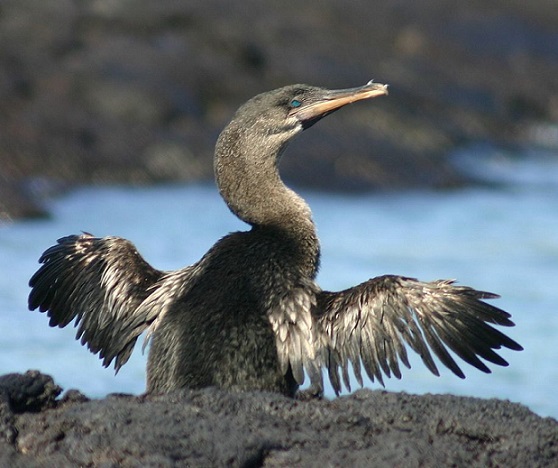Podcast: Play in new window

BOB HIRSHON (host):
Flightless genes. I’m Bob Hirshon and this is Science Update.
Over the course of evolutionary history, many birds have lost the ability to fly. Those with few natural predators, like kiwis, fast runners, like ostriches, or good swimmers, like penguins.
ALEJANDRO BURGA (UCLA):
To fly is very expensive, metabolically speaking. So a lot of the energy of the bird goes toward flying.
HIRSHON:
Now, UCLA molecular geneticist Alejandro Burga and his colleagues have identified genetic factors underlying flight loss in the Galapagos cormorant. They report in the journal Science that the bird has a gene mutation known to cause wing shortening in chickens. Even more surprising, they found gene mutations that in humans are linked to bone development disorders. It’s not yet known if similar factors lead to flightlessness in other birds.
BURGA:
This is exciting because this is the first time that we are starting to have a mechanism for these macroevolutionary changes.
HIRSHON:
I’m Bob Hirshon for AAAS, the science society.
Story by Susanne Bard
